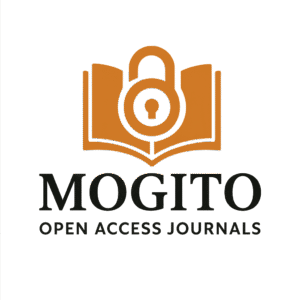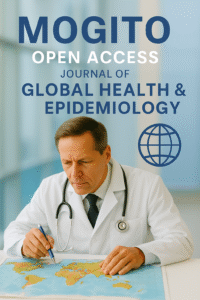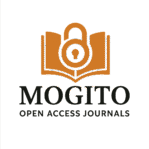Mogito Open Access Journal of Global Health & Epidemiology (MJGHE) Publication Ethics
Ethical Publishing Policy – Mogito Open Access Journal of Global Health & Epidemiology (MJGHE)
At the Mogito Open Access Journal of Global Health & Epidemiology (MJGHE), we are committed to the highest standards of research ethics, transparency, and academic integrity in global health publishing. Our ethical publishing policy defines the responsibilities of authors, editors, peer reviewers, and the publisher to ensure that all content meets the principles of credibility, scientific rigor, and research reliability. This framework safeguards the quality of our journal and supports the advancement of trustworthy, high-impact global health and epidemiology research.
1. Ethical Responsibilities of Authors
Originality & Plagiarism
All manuscripts must be original, properly referenced, and not under review elsewhere. MJGHE uses plagiarism detection software to verify authenticity. Plagiarism, data fabrication, and duplicate submissions are strictly prohibited.
Authorship Criteria
Authorship is reserved for those who have made significant contributions—such as study design, data analysis, result interpretation, or manuscript drafting. All authors must approve the final submission.
Data Accuracy & Transparency
Authors must provide complete, accurate, and reproducible data. Manipulation, fabrication, or selective reporting will lead to rejection or retraction. Raw data may be requested during peer review.
Conflict of Interest Disclosure
All potential conflicts—financial, institutional, or personal—must be disclosed upon submission to maintain trust and transparency.
Ethical Approval & Consent
Research involving humans, animals, or sensitive data must have prior approval from an ethics board or institutional review committee, and informed consent must be obtained from participants.
See Authors Guide for more…
2. Responsibilities of Editors
Editorial Independence
Decisions are based solely on the manuscript’s scientific merit, originality, and relevance, free from political, commercial, or institutional bias.
Fair & Timely Peer Review
Editors ensure manuscripts undergo rigorous double-blind peer review by qualified, impartial reviewers.
Confidentiality
All submissions are treated with strict confidentiality and cannot be used without author consent.
Conflict of Interest Management
Editors must disclose conflicts and recuse themselves from any manuscript where impartiality is compromised.
3. Responsibilities of Peer Reviewers
Objective Evaluation
Reviewers provide fair, constructive, and evidence-based feedback on originality, scientific quality, and relevance.
Confidentiality
Review content must not be shared or used for personal advantage.
Conflict of Interest Disclosure
Reviewers must declare conflicts and decline reviews when impartiality cannot be maintained.
4. Publisher Responsibilities
Published by Mogito Open Access Journals, MJGHE follows the Committee on Publication Ethics (COPE) guidelines, supporting:
- Full editorial independence
- Global accessibility of public health research
- Transparent authorship and data reporting
- Prevention and resolution of ethical misconduct
5. Handling Research Misconduct
MJGHE investigates all allegations of:
- Plagiarism
- Data falsification or manipulation
- Unethical research methods
- Authorship disputes
Confirmed violations may result in rejection, retraction, or formal correction.
6. Retraction & Correction Policy
- Erratum – For publisher errors not affecting study validity
- Corrigendum – For author-requested corrections
- Retraction – For confirmed misconduct or serious data flaws
All notices are permanent, transparent, and linked to the original article.
Commitment to Integrity
We believe ethical publishing is essential to advancing global health and epidemiology. Authors, reviewers, editors, and readers share the responsibility to uphold these principles in every stage of publication.
Report Ethical Concerns:
📧 Email: mjghe@mogitojournals.org
🌐 Website: www.mogitojournals.org



To celebrate the launch of MJGHE, the first 10 accepted manuscripts will be published free of charge.
Submit now and enjoy open access publishing at no cost.
Ready to Publish Your Research
We’re here to guide you through every step of your publishing journey—from submission to global reach..

Let’s advance knowledge and discovery—together.
When connected with us, you aren’t growing your business alone. We have your back and put in our best to contribute to the growth of your entire team and organization. So, if you are “When you publish with us, you’re not navigating the process alone. Our editorial team is committed to supporting you through peer review, publication, and global dissemination. If you’re looking for the right platform to share your research, enhance visibility, and make a meaningful impact—Mogito is here for you.”
